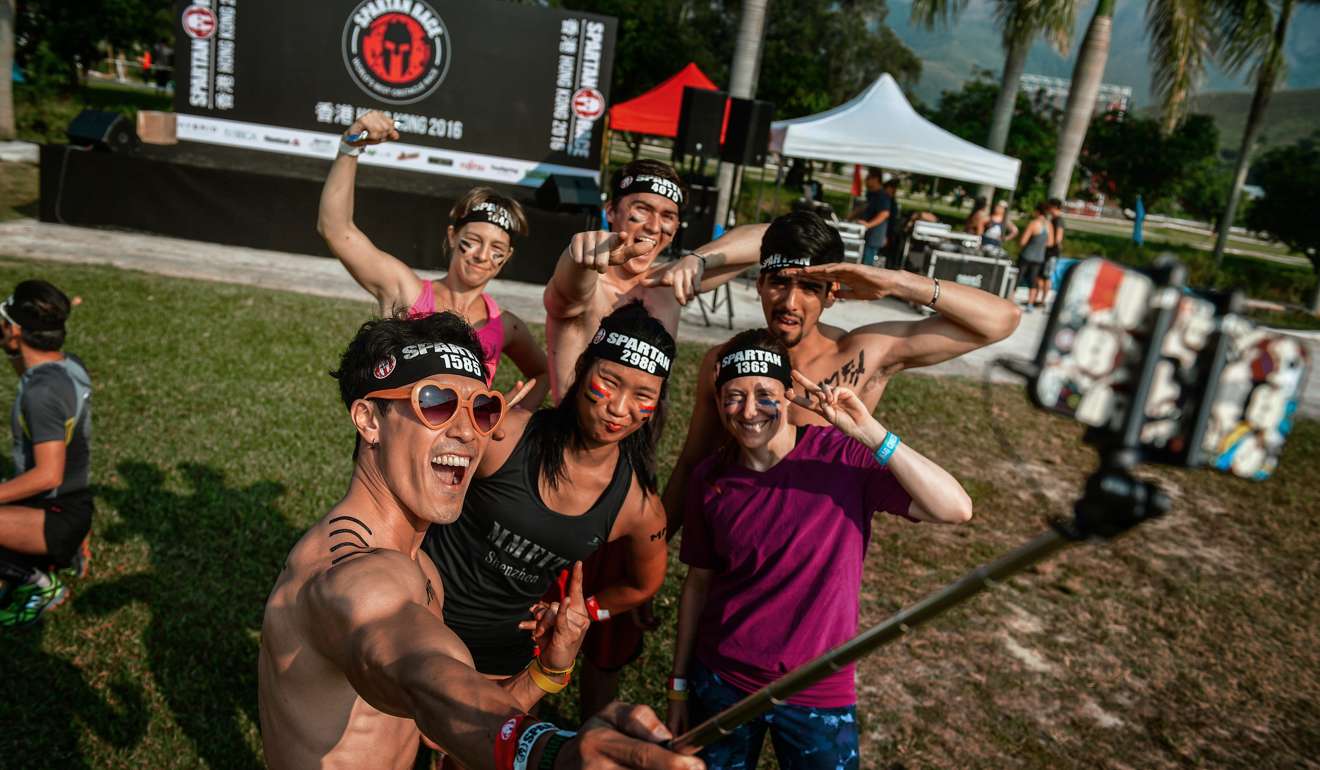
Drug-testing – or its absence – under scrutiny as thousands prepare for Hong Kong Spartan Race
Thousands will take part in this weekend’s event, but will they be competing on equal terms?
Among them looks set to be Ivanov Lo Ching-hin, who finished fourth in the elite category when the event was first held in November 2016.
He’s one of those people for whom fitness is a way of life. His Facebook page is full of selfies of his rippling abs and videos of himself doing pull-ups shirtless. His most recent post was an image of his Spartan training schedule.
He would surely be a serious contender in Saturday’s event, the first leg of the inaugural Asia-Pacific Spartan Championships which has US$50,000 in cash and prizes.

Neither Lo nor Spartan are breaking rules. According to the Hong Kong Anti-Doping Committee (HKADC) Lo “is ineligible to participate in any capacity with any sport affiliated to the Sports Federation & Olympic Committee of Hong Kong, China (SF&OC) or organisations regulated by the World Anti-Doping Code.”
The Spartan Race does not fall under these categories – indeed, the world’s most famous drug cheat, Lance Armstrong, competed in one of their events in April 2016.
A post shared by Lance Armstrong (@lancearmstrong) on Apr 23, 2016 at 10:58am PDT
We reached out to Spartan, the HKADC and Lo for comment. Lo had not responded at time of publication, and a Spartan spokesman said they were working on a response. We will update if and when they reply.
But the opinions of Spartan’s founder about performance-enhancing drugs are readily available.
Tough Mudder, Spartan Race ... why pay to be electrified?
“By now everyone knows about Lance Armstrong’s comeuppance and all the deception and intimidation he mustered to protect his secretive use of PEDs over many years,” wrote Joe De Sena in his book Spartan Up! A Take-No-Prisoners Guide to Overcoming Obstacles and Achieving Peak Performance in Life.
“Such duplicity and the dishonour it produces is the antithesis of the Spartan creed. Our lifestyle pits you against your past self and your former limitations, so drug taking would defeat the purpose of what we do.”
But those serving drug bans are welcome to compete? Seems a bit of a conflict there, Joe.
We are Spartan: Thousands ready to do battle as ‘mud and guts’ obstacle race series kicks off in Hong Kong
“By introducing athletes to Usada and anti-doping, Spartan is fully supporting the concept that clean competition is crucial to growing a sustainable and globally recognised sport,” said Spartan Race COO Jeffrey Connor in a press release. “This step also illustrates Spartan Race’s continued commitment to the preservation of a level playing field.”
A spokesman added that this was the first step towards Usada anti-doping testing at their US events, but how much testing is carried out is unclear. The event’s waiver requires “elite and other participants competing for cash prizes only” to consent to give a urine sample if asked.

How mass participation sports events ‘exploded’ in Hong Kong – and the challenges city faces to stay at the forefront
Tough Mudder generated US$100 million in revenue in 2015, its founder told Business Insider recently. Spartan Race keeps its figures to itself, but with 170 events in 25 countries in 2016, a TV show on NBC and top-tier sponsors such as Reebok and Yokohama Tires, its safe to assume the company is doing okay.
Spartan founder De Sena has also said he wants to see the sport in the Olympics; to have any hope of that, Wada protocols will have to be introduced and enforced.
Perhaps those paying from HK$890 to HK$1190 to take part on Saturday only care about getting fit, having fun and posting some good pics on Facebook.
But if I were stumping up to take part and punishing myself in the gym to prepare (as a fat miser, neither is likely), I’d like to be confident that the person crawling under the barbed wire beside me was not cheating.

